detail profile vadim medvedev
Peran Yang Di Mainkan Vadim Medvedev
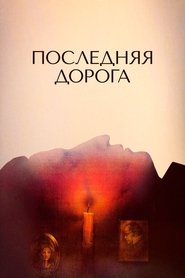 About the death of Aleksandr Pushkin...
About the death of Aleksandr Pushkin...The Last Road 1986
About the death of Aleksandr Pushkin, the leading poet and writer of Russia, who was shot on a duel and died when he was 37.
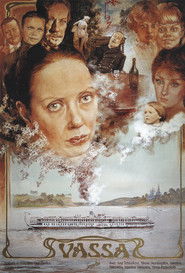 Screen adaptation of the play by...
Screen adaptation of the play by...Vassa 1983
Screen adaptation of the play by Maxim Gorky "Vassa Zheleznova". Saga of the death of a merchant family. For many years, Vassa Zheleznova has been leading the family business and, despite the inconspicuous children, her dissolute husband, alcoholic brother, and revolutionary daughter-in-law, is trying to maintain at least the appearance of a normal family... 1913 is coming, and everything that was dedicated to her life is wrecked.
 Andrey Pavlovich Buzykin who makes a...
Andrey Pavlovich Buzykin who makes a...Autumn Marathon 1979
Andrey Pavlovich Buzykin, who makes a living by teaching at an institute and translating English literature, is cheating on his wife. Buzykin's main problem is that he's a kind man with a weak character. The lies he is telling his wife all the time are inconvincing, but he never has the courage to tell her the truth. His lover, Alla, is aware of his family life, but gets offended when, for example, he cannot meet her so that he doesn't come home late, or when he doesn't want to go home in a new jacket she gives him to avoid having to explain to his wife. Alla and Nina, Andrei's wife, both leave him, forgive him, and return to him at the same time, and Andrei continues with this kind of life, full of suffering and deceit. Finally, both women are so fed up with his lies that they don't believe him even when he is telling the truth...
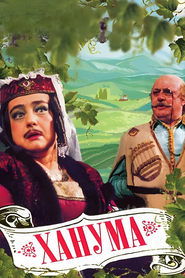 A classical romantic comedy set in...
A classical romantic comedy set in...Khanuma 1978
A classical romantic comedy set in Tbilisi, Georgia in the beginning of XX century.
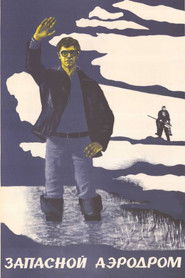 Young Mitya comparing his fathers home...
Young Mitya comparing his fathers home...Reserve Aerodrome 1978
Young Mitya, comparing his father's home photo with the picture in the newspaper, realized that he had to go to the Arctic coast to finally meet his father. But the wait for the meeting turns out to be long, because the young man himself is not ready for this, and then, having personally learned about life at the polar reserve airfield, he is no longer so irreconcilable and does not attach such crucial importance to the meeting with his father.
 Soviet spy Ladeynikov learns that in...
Soviet spy Ladeynikov learns that in...The Dead Season 1968
Soviet spy Ladeynikov learns that in one of the pharmaceutical centers in a small resort town works a former German war criminal Dr. Hass, who is finishing the creation of a deadly chemical gas RH development of which he began during WW2 experimenting on war prisoners. Since Ladeynikov doesn't know Dr. Hass's appearance, Soviet intelligence recruits an actor, Ivan Savushkin, who during the war escaped from a prison camp where Hass was testing his gas. Together they must identify and stop him before he finishes and unleashes his weapon of mass destruction.
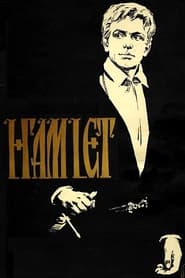 Shakespeares 17th century masterpiece about the...
Shakespeares 17th century masterpiece about the...Hamlet 1964
Shakespeare's 17th century masterpiece about the "Melancholy Dane" was given one of its best screen treatments by Soviet director Grigori Kozintsev. Kozintsev's Elsinore was a real castle in Estonia, utilized metaphorically as the "stone prison" of the mind wherein Hamlet must confine himself in order to avenge his father's death. Hamlet himself is portrayed (by Innokenti Smoktunovsky) as the sole sensitive intellectual in a world made up of debauchers and revellers. Several of Kozintsev directorial choices seem deliberately calculated to inflame the purists: Hamlet's delivers his "To be or not to be" soliloquy with his back to the camera, allowing the audience to fill in its own interpretations.
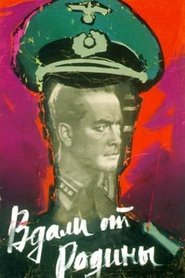 Soviet intelligence officer Lieutenant Goncharenko under...
Soviet intelligence officer Lieutenant Goncharenko under...Far from the Motherland 1960
Soviet intelligence officer, Lieutenant Goncharenko, under the name of Baron Heinrich von Goldering is thrown into the deep German homeland on a mission to find out the location of the secret underground plant that produces new types of weapons.
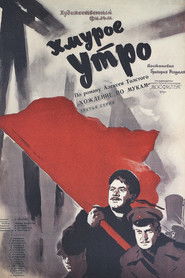 The third film in the trilogy...
The third film in the trilogy...Gloomy Morning 1959
The third film in the trilogy ("The Sisters", "The Eighteenth Year", "The Gloomy Morning") based on the novel by Aleksei Tolstoy "The Road to Calvary". About the fate of the Russian intelligentsia against the background of the collapse of the Russian Empire and the civil war, which turned the lives of all the heroes of the film narration. Defending Tsaritsyn, the red commander Telegin was seriously wounded. At the hospital, he meets Dasha. After his recovery, the young spouses go together to the Red Army.
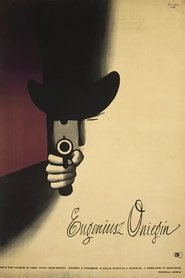 Eugene Onegin a jaded young dandy...
Eugene Onegin a jaded young dandy...Eugene Onegin 1959
Eugene Onegin, a jaded young dandy from the big city of St. Petersburg, travels to the country to ingratiate himself into the affection of a dying uncle. There he meets the idealistic and romantic poet Vladimir Lensky, who introduces him to the daughters of a local landowner.
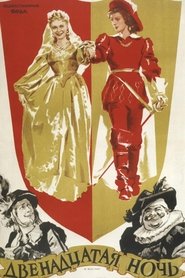 Shakespeares comedy of gender confusion in...
Shakespeares comedy of gender confusion in...Twelfth Night 1955
Shakespeare's comedy of gender confusion, in which a girl disguises herself as a man to be near the count she adores, only to be pursued by the woman he loves.
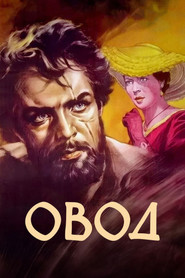 Italy XIX century The country is...
Italy XIX century The country is...The Gadfly 1955
Italy, XIX century. The country is occupied by Austrian troops, the resistance movement is actively developing. Student Arthur Burton is involved in the activities of the underground organization “Young Italy”, envies its leader, Giovanni Bolla, and is jealous of his bride Gemma. He talks about this at a confession to a priest, as a result of which gendarmes take revolutionaries under arrest...
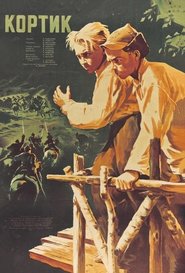 The teenager Misha Polyakov being with...
The teenager Misha Polyakov being with...The Cutlass 1954
The teenager Misha Polyakov, being with his mother in a Ukrainian village on vacation with his grandmother and about to return home to Petrograd, offers his best friend Genka to go with him. Suddenly, a white gang of Nikitsky bursts into the village and attacks Misha’s house, where Commissioner Polevoy lives. The purpose of Nikitskiy (aka Nikolskiy) is a dagger located at Polevoy. Saving the commissioner, Misha learns from him the history and secret of the weapon, and receives it for storage with a request to solve the secret. Having returned with adventures to Petrograd, Misha Polyakov with friends begins to unravel the riddle of the dagger, in the handle of which is encrypted text.
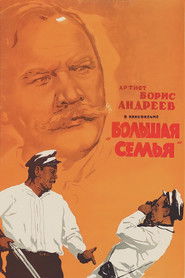 Drama based on the novel by...
Drama based on the novel by...A Big Family 1954
Drama based on the novel by Vsevolod Kochetov “The Zhurbin Family”. The characters of the picture are a large family of hereditary shipbuilders. Three generations of the Zhurbin live under one roof: grandfather Matvei, his son Ilya, three sons of Ilya — Aleksei, Anton and Viktor. In a short time, representatives of the fourth generation are born. The share of the youngest son of Aleksei fall the most severe life tests. The background for family conflicts is the reorganization of production. All Zhurbin's have to change their profession to move on.
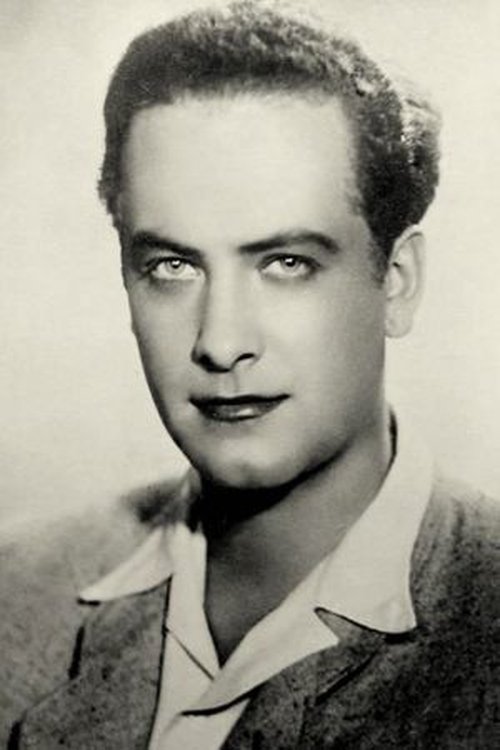
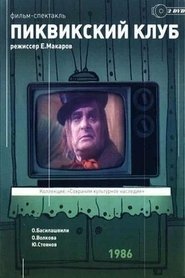
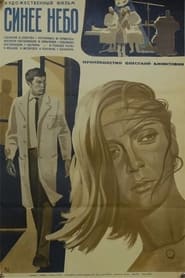
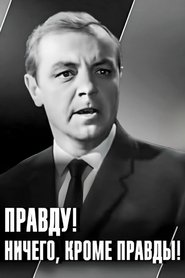 About the trial of the October...
About the trial of the October...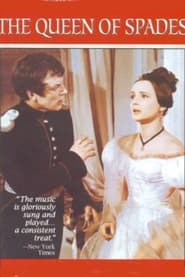 Screen adaptation of Tchaikovskys opera based...
Screen adaptation of Tchaikovskys opera based...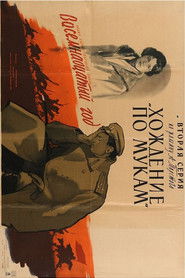 Swept up in political unrest during...
Swept up in political unrest during...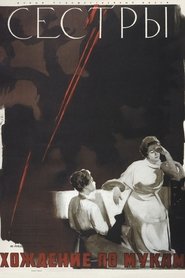 Swept up in political unrest during...
Swept up in political unrest during...